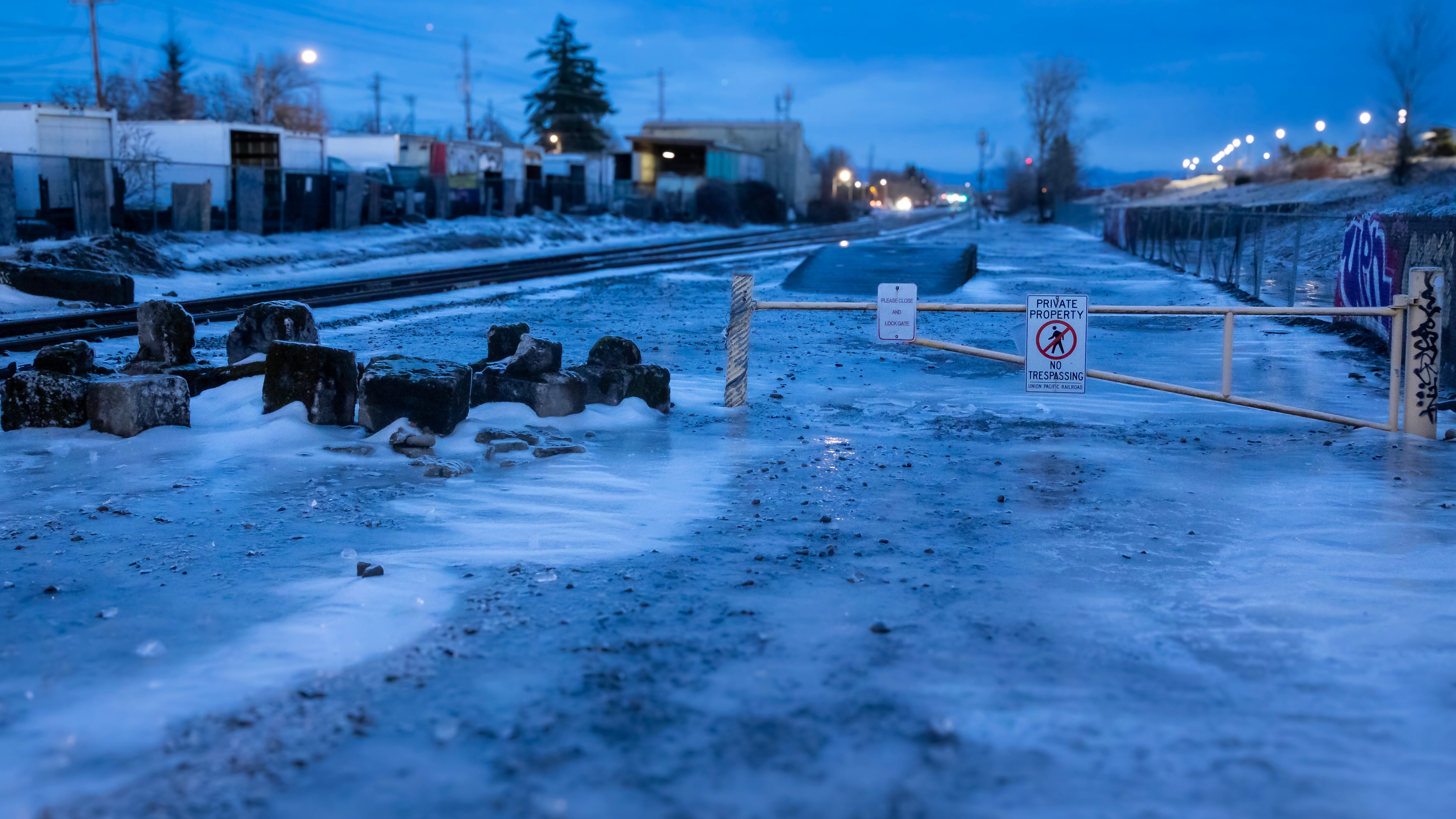A state senator is asking Multnomah County to review its thresholds for opening emergency weather shelters, two weeks after the sudden closure of those shelters sent hundreds of people onto icy streets.
Sen. Chris Gorsek (D-Gresham) this afternoon became the highest-ranking official yet to criticize how the county handled the end game of a vicious winter storm that killed more than 10 people in the Portland area and left the region paralyzed by ice and falling trees. Gorsek focused his rebuke on the policy language that allowed officials to close shelters when the weather improved but ice still covered most outdoor surfaces.
“I was shocked to hear that Multnomah County emergency shelters had a protocol that closed those facilities when the temperature was forecast to exceed 25 degrees,” Gorsek wrote in a statement Wednesday.
“That meant that people were forced out into the ice and snow long before temperatures rose above freezing,” he continued. “I am calling on Multnomah County to revisit that threshold and to be more flexible in how such decisions are made. To my mind shelters should not be closed until the temperature reaches 40 degrees and a substantial amount of melting has occurred.”
Multnomah County opens shelters when the temperature is forecasted to fall to 25 degrees or below, when an inch of snow is forecast, or when the forecast calls for an inch or more of driving rain and temperatures below 32 degrees.
In the face of widespread criticism, Multnomah County Chair Jessica Vega Pedersen blamed the sudden closure of shelters on a faulty weather forecast. But records reviewed by WW in the days following the closure showed that shelter coordination was the latest example of county and city governments failing to work together. Portland city officials placed strict limits on when city employees could volunteer at shelters, in response to an outside report showing previous weather responses had been fractured and disorganized.
WW asked Vega Pederson to respond to Gorsek’s demand for reform. She sent a statement that took responsibility for the closures but did not commit to a specific change.
“Our severe weather shelters saved lives during the very coldest and harshest nights of this severe weather event, and Multnomah County uses the best information we have to make decisions about severe weather shelter openings and closings,” Vega Pederson said. “But the widely forecasted thaw that we expected last Wednesday did not happen and our shelter operations, which are tremendously difficult to maintain for prolonged periods, shuttered at a time when ice was still on the ground. The good news is that we don’t have additional reports of hypothermia deaths as a result of the Jan. 17 closure. But we could have done better, and we will continue to work on our response for the future.”
Gorsek told WW he was spurred to call for reform after reading news reports about the shelters closing. “Plus, we had a hell of a time with no power for a day and a half with the temp inside our house at 50 degrees,” he added, “so I couldn’t imagine just how bad it was for the houseless out in the ice and snow at 25 degrees.”

